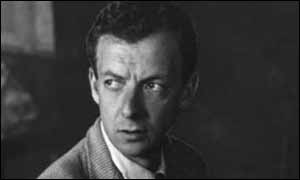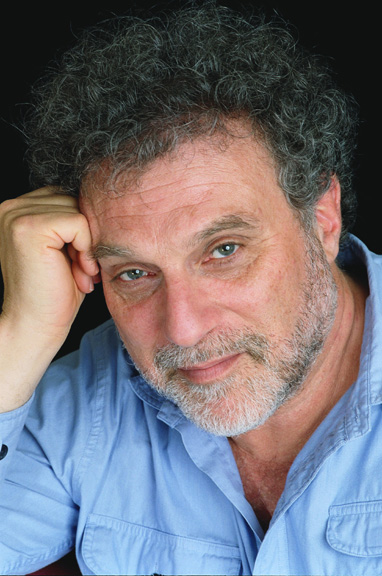Our weekly listen and look at living, breathing composers and performers that you may not know yet, but I know you should… And can, right here and now, since they’re nice enough to offer so much good listening online (This will be the last click-picks for December; Xmas, New Years, etc., you know how it goes… back with more in January):
Aaron Gervais (b.1980 — CA / US)
Born in Edmonton, Canada, Gervais is currently pursuing a Master’s degree in composition at UC San Diego. Aaron is also a graduate (with honours) from the University of Toronto, where he studied under Professor Chan Ka Nin. He’s also studied jazz and composition at Grant MacEwan College, composition at the University of Alberta, and Cuban percussion in Havana. He’ll tell you:
Over time, my music has gradually taken on more and more aspects of my particular musical background. I grew up playing jazz and rock drums in addition to classical percussion, and this influence has become increasingly clear in my pieces, although not always in terms of direct appropriation. What is more common is an interest in the cultural elements of hearing: why we hear things in certain ways, what it is we listen for in particular genres, and so forth. In addition, my recent pieces have taken a particularly critical slant on these questions. I tend not to trust statements or ideas that people take as axiomatic, so I have focused on writing music that deconstructs these “givens” in order to find out exactly how axiomatic they really are—challenge for the sake of challenge, in other words. […] Over the past few pieces, I have been interested in writing music that is fast-paced, rhythmic, and light in texture. I’ve definitely written a lot of slow dark music, but it seems to me that there is a preponderance of that kind of thing in the new music community and I want to see how far I can push the other direction. Composers like Jacob ter Veldhuis and Richard Ayres have been particular inspirations in that regard, though I am just as likely if not more to look at popular music for this.
Aaron’s clean and clear site will tell you more, and under “Works” you’ll find plenty of quality listening, along with program notes and score excerpts.
Pamelia Kurstin (b. 1976 — US / AT)
For all its low-tech, archaic and arcane qualities, the theremin (that curious electric box that you play by moving your hands/fingers through the space around two antennae) has had a fairly healty resurgence in the last ten years. In fact, I’d venture to guess that the number of people playing (or at least playing with) the theremin is higher right now than at any time since its invention in the 1920s. Of all these, one of the most musical and ambitious has to be Pamelia Kurstin. Hailing from Michigan, time spent in NYC, but now in Vienna, Austria, Pamelia has a real affinity for coaxing beautiful music out of what can be an real beast of an instrument. Besides appearing on many other artist’s recordings, she’s long been rumored to eventually have a solo CD appearing on John Zorn’s Tzadik label. In the meantime, this will take you to her Myspace page, where you can hear four intriguing selections. She does have a “real” website here; no sound and it’s a jumbly mess, but between the two you’ll get a pretty good idea of her restless and cheeky-smart character.
Hakoneko (JP)
Hakoneko’s real name? I’m not sure we’ll ever know. The only biographical line we have is this: “I started making music with PC while cherishing my sweet cat in my room.”…. Released about a year-and-a-half ago on the excellent Portuguese netlabel Mimi, Hakoneko’s Umi no drone (Drones of the Sea) is one of the most ravishing examples of so-called “ambient” or “drone” music I’ve ever heard — and I’ve heard a lot! This kind of music is all about color and volume, something that palpably fills the listening space and makes its own atmosphere (in an almost literal sense). There are many excellent, high-profile artists in this style, but that they can be in every way equalled, even bested, by a kid sitting in their bedroom in Japan is why it pays to always keep the ears open and let the music, not just the official hype, do the talking. …And to marvel at this web, which can cut out all the business-wonk and connect a bedroom half-a-world away directly to my living room.
 It’s that time of the year again, folks, when composers around the world turn their attention to Los Angeles, with bated breath, waiting to hear who is, in fact, the greatest composer in America and the world this year. Who has advanced the art, who has raised the human spirit, who has earned his (yes, pretty much always, it’s his) place in musical history.
It’s that time of the year again, folks, when composers around the world turn their attention to Los Angeles, with bated breath, waiting to hear who is, in fact, the greatest composer in America and the world this year. Who has advanced the art, who has raised the human spirit, who has earned his (yes, pretty much always, it’s his) place in musical history.

 Martin Bresnick turned 60 last month and he’s celebrating the event with two events at Zankel Hall this week. One piece will be on the Bang on the Can All-Stars program on Tuesday night and, on Saturday, the Yale School of Music will devote an entire evening to Bresnick’s music, including choral songs, a concerto for two marimbas, and a multimedia piece for solo pianist.
Martin Bresnick turned 60 last month and he’s celebrating the event with two events at Zankel Hall this week. One piece will be on the Bang on the Can All-Stars program on Tuesday night and, on Saturday, the Yale School of Music will devote an entire evening to Bresnick’s music, including choral songs, a concerto for two marimbas, and a multimedia piece for solo pianist.